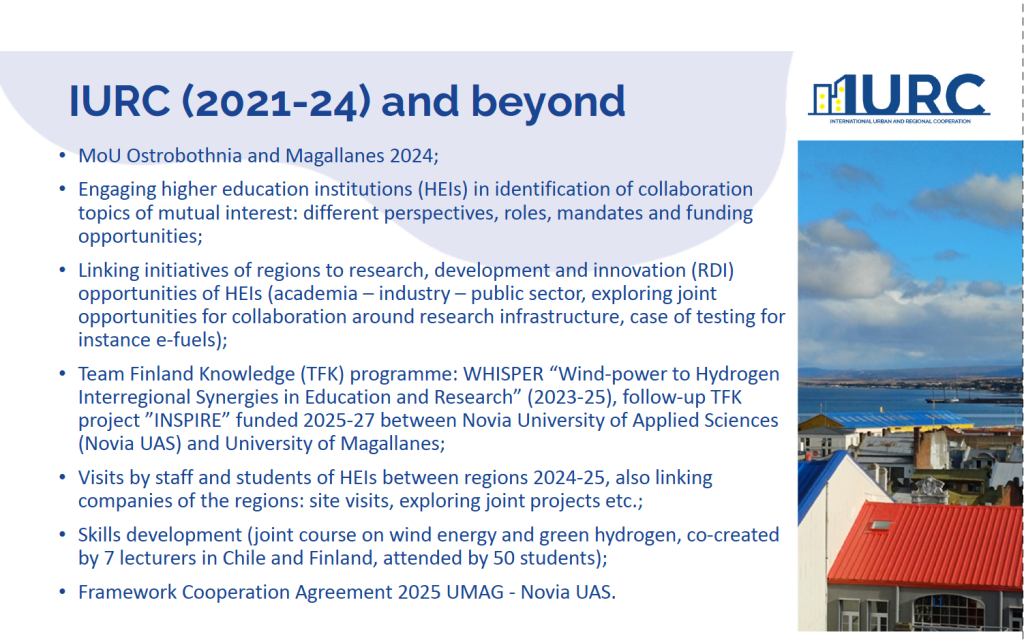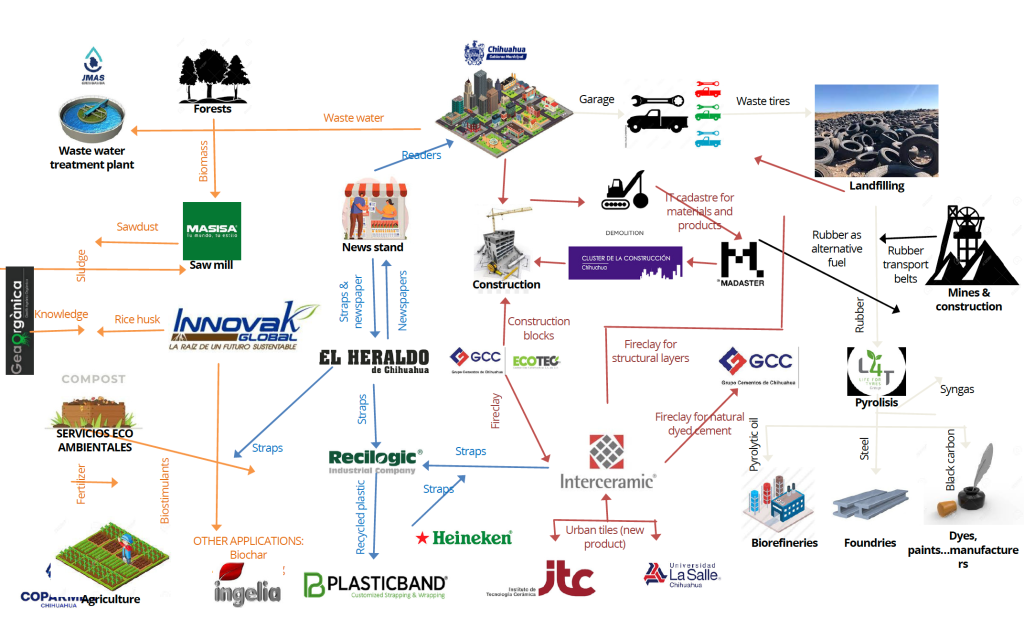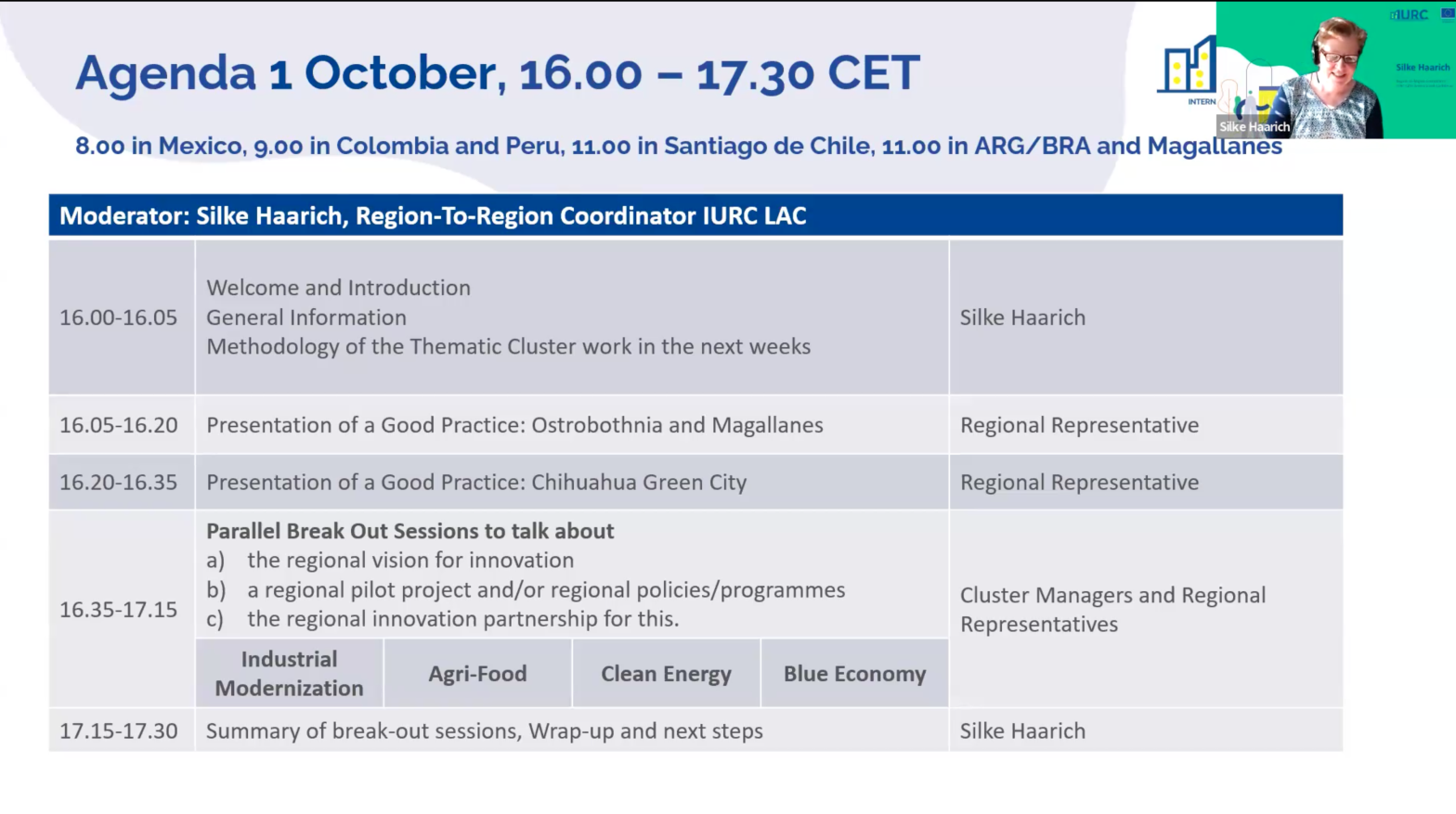On 1 October 2025, the International Urban and Regional Cooperation (IURC) Latin America & Caribbean programme hosted its third session of the Regional Thematic Cluster series, gathering 41 participants from more than 30 regions. The meeting focused on fostering regional partnerships in areas such as clean energy, blue economy, industrial modernisation, and agri-food, and served as a stepping stone toward the development of Regional Cooperation Action Plans (RCAPs).
Framing the Agenda: Cooperation and Next Steps
Silke Haarich, IURC-LAC Region-to-Region Coordinator, welcomed participants, addressed registration issues and outlined the agenda. The session structure included presentations of good practices, thematic breakout discussions, and a wrap-up on future steps. She underlined the methodology of geographical pairings that will lead to the drafting of RCAPs by March 2026.
Regional Best Practices: Finland and Mexico
The meeting highlighted concrete examples of regional cooperation and innovation:
- Ostrobothnia, Finland showcased results from its pairing with the Magallanes Region (Chile). The cooperation has advanced joint research, online courses, and bilateral visits, raising awareness at both regional and national levels. Universities played a central role, particularly in developing hydrogen-related initiatives. A major highlight was the Hydrogen Valley ecosystem, which has engaged over 30 stakeholders and mapped 15 hydrogen value chains, now extending to seven Finnish regions despite the absence of large-scale external funding.

- Chihuahua, Mexico presented circular economy initiatives across industries such as automation, textiles, and mining, in partnership with the state government. Concrete projects included a shared water treatment plant, a tire recycling facility creating new jobs, and innovative cooperation between cement and ceramic companies to produce ecological blocks from waste materials. The initiatives have been strengthened by workshops, government engagement, and a new platform to track industrial needs and opportunities.

Breakout Room Discussions: Shared Challenges and Opportunities
After the presentations, participants split into thematic breakout rooms to exchange insights and identify synergies across regions:
- Clean Energy: Regions such as Yucatán, Chihuahua, and Hunedoara County discussed early-stage strategies, industrial restructuring, and the role of hydrogen in regional transitions. The emphasis was on building partnerships and leveraging past pilot projects for future action.
- Blue Economy: With high participation, this group explored fisheries, aquaculture, ocean literacy, and community-based projects. Cooperation was noted between universities, schools, local communities, and government bodies, with several regions identifying overlapping interests.
- Industrial Modernisation & Agri-Food: Regions including Bucharest, Santiago, Bolzano, and Amazonas shared experiences in capacity building, SME partnerships, and digital skills development. They emphasized the importance of preparing communities for industrial transformation, integrating digitalisation, entrepreneurship, and upskilling programmes.
Preparing for Barcelona: Towards Regional Cooperation Action Plans
The session concluded with a reflection on the potential need to rearrange thematic clusters based on common interests, ensuring more effective cooperation. The outcomes of these discussions will feed directly into the Barcelona Smart City Expo World Congress (3–6 November 2025), where regions will further shape partnerships and define actionable steps for their RCAPs.
